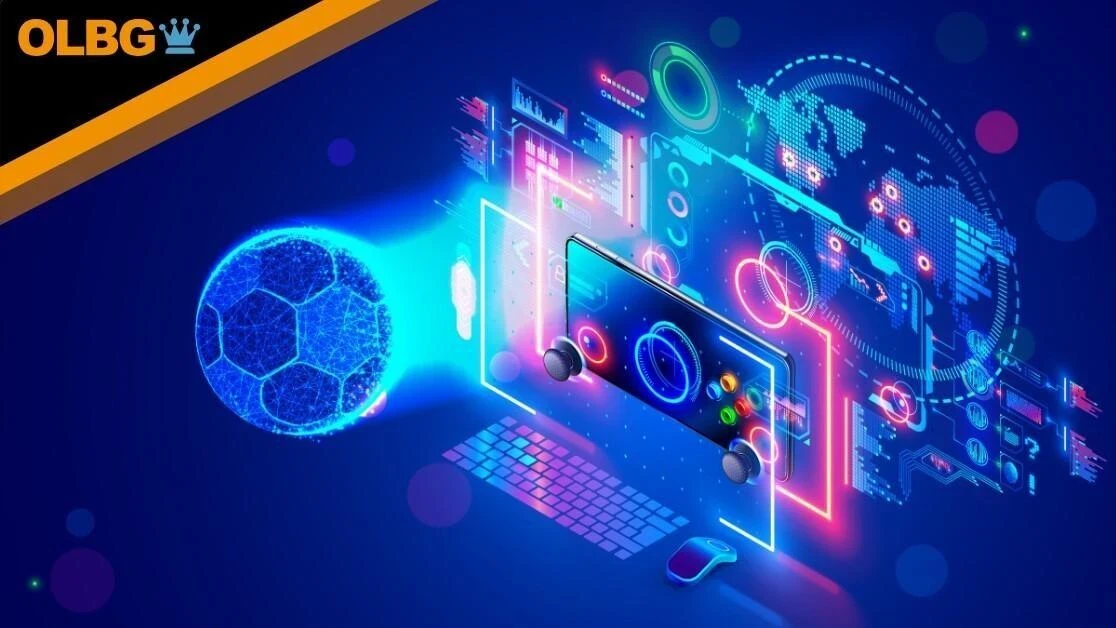
Your data guide to football betting, Dan Tracey shows you where the numbers point before the market catches up.
Thanks to a convergence of technology and sports (and by extension gaming), a new era of innovation has been ushered in and because of this, it has largely redefined how games are played, analysed, and experienced.
From real-time data analytics that have changed the conversation surrounding sports to immersive virtual experiences, technological advancements are driving unprecedented changes in both industries.
🛠️ Tech Takes the Game to New Heights! 🚀🏟️
Changes that are only going to continue into 2025 and beyond and these trends continue to evolve, they will be able to shape every aspect of the sporting landscape from player performance to fan engagement and everything in between.
With this in mind, we are now going to look at the key factors were technology is set to move sport along even further:
Sports Betting

Technology is driving the sports betting experience as innovations such as machine learning algorithms and blockchain not only enhance the user experience but also offer greater transparency and fairness to betting platforms.
Sports betting platforms now utilise real-time data and predictive modelling to refine odds and offer bettors deeper insights. AI-driven algorithms analyse player and team statistics to calculate probabilities with unprecedented accuracy.
This level of detail allows bettors to make more informed decisions, with features like live in-play betting offering dynamic, constantly updating odds as games unfold. Of course, AI can also provide tailored bonuses and offers to existing customers.
Thanks to the advancement in AI, Platforms can leverage user data to make customised bet suggestions and personalised dashboards. This approach increases user engagement and encourages responsible gambling by providing tools to set limits based on individual habits.
The Impact of Data Analysis

Data analytics has become a cornerstone of modern sports and gaming. Advanced metrics provide granular insights into performance, strategy, and decision-making. For instance, football’s Expected Goals (xG) and Expected Assists (xA) offer a nuanced understanding of scoring opportunities.
No longer is it a case of looking at the score in isolation; this additional context can indicate how well a team has been performing or is set to perform over the next few weeks and months.
When moving from the football field to the hardcourt, similarly, basketball teams use player-tracking data to identify optimal shot selections, reducing contested shots by up to 15% during games.
Heatmaps and session data optimise player performance in gaming, identifying behaviours that maximise win rates. Developers rely on extensive A/B testing to improve user experiences, employing machine learning algorithms to analyse player preferences.
For example, Esports teams also use advanced analytics to study opponents, resulting in a 30% increase in match win rates for teams employing dedicated analysts, according to a 2023 Esports Analytics report.
Such statistical studies highlight the growing reliance on analytics. A 2023 report projected that the global sports analytics market will grow from $2.5 billion in 2022 to $5.2 billion by 2027, with a compound annual growth rate (CAGR) of 15.9%.
Wearable Technology and Real Time Insights

Wearable technology is transforming how athletes and gamers monitor performance. Smart sensors embedded in jerseys, wristbands, and controllers provide real-time feedback on heart rate, reaction time, and fatigue levels.
For example, rugby teams have adopted GPS tracking systems to monitor player movement and optimise strategies. Similarly, competitive gaming platforms use biometric sensors to measure stress levels during matches, helping players refine their focus under pressure.
In 2023, the global wearable sports market was valued at $15.3 billion, predicted to reach $24.7 billion by 2028. Devices such as WHOOP and Garmin wearables are at the forefront of this growth, offering advanced recovery metrics for athletes as they look to find that extra edge.
Artificial Intelligence and Predictive Modelling

AI and machine learning are reshaping predictive modelling across both industries. These technologies analyse complex datasets to forecast outcomes and refine strategies. In sports, AI-powered systems predict injury risks by correlating workload patterns with historical data.
A 2024 case study from the NBA showed that teams using AI injury prediction models reduced player downtime by 20% and with so many games in the regular season, this will be a huge boost to those franchises who implement the technology.
In gaming, AI-driven algorithms adapt gameplay in real time, tailoring experiences to individual players. Game developers also use predictive analytics to anticipate player behaviour, enabling dynamic updates and personalised content.
The global AI in gaming market was valued at $1 billion in 2022, with a forecasted CAGR of 23% through 2030 and in addition to this, AI tools like OpenAI’s GPT models are increasingly used to generate dynamic storylines, enhancing player engagement
Immersive Technology: VR and Beyond

Virtual reality (VR) and augmented reality (AR) are bridging the gap between digital and physical experiences. In sports, VR simulations allow athletes to practice under game-like conditions without physical exertion.
AR enhances broadcasts by overlaying real-time data onto live events, enriching fan engagement. A 2024 survey by PwC revealed that 68% of fans believe AR-enhanced experiences significantly improve their enjoyment of live sports.
In gaming, VR titles are leveraging advancements in haptic feedback and motion tracking to create fully immersive worlds. This is where platforms such as Oculus and HTC Vive are leading the charge, with the VR gaming market projected to reach $92.3 billion by 2025.
In addition to this, established companies such as Sony are now beginning to explore AR overlays for spectator esports, enhancing the viewing experience by integrating real-time match stats into the visuals.

10 Technologies That Have Shaped Online Gambling
Blockchain and Decentralised Platforms

On top of all these advances, blockchain technology is starting to emerge as a transformative force in sports and gaming. With this technology, decentralised prediction markets offer transparency and fairness, which, in turn, attract users to blockchain-powered betting platforms.
Not only that, but blockchain ensures secure, verifiable transactions for in-game purchases and digital collectables – technology that played a considerable part in the NFT-led boom that started at the beginning of the decade.
A notable example is Sorare, a blockchain-based fantasy football platform that reported over $200 million in sales in 2023 as players look to take ownership of the best players in the world within a digital format.
While within the gaming world, Enjin’s blockchain solutions have enabled developers to create digital assets that can be traded or used across multiple games. Consequently, the global blockchain gaming market is projected to surpass $65 billion by 2027.
Sustainability and Green Tech

The topic of sustainability is becoming a key focus as industries adopt greener technologies. Energy-efficient computing and solar-powered sensors are reducing the carbon footprint of data processing even if AI seems to get hungrier by the day.
A leading example of this comes from football and FIFA’s introduction of solar-powered wearables during the 2023 Women’s World Cup – showcasing a commitment to eco-conscious innovation within the beautiful game.
When pivoting the gaming world, developers are exploring energy-efficient servers and optimised code to minimise environmental impact, aligning with global sustainability goals as data demand increases.
Conclusion
Technology continues to revolutionise sports and gaming, creating synergies that drive innovation and engagement. From data analytics and wearable tech to immersive experiences and blockchain solutions, these advancements are redefining the boundaries of possibility.
As we enter 2025, there is no doubt that the integration of cutting-edge tools ensures that both industries will remain at the forefront of technological progress, enhancing experiences for players, athletes, and fans alike.
SOURCES
- MarketsandMarkets, "Sports Analytics Market by Component, Application, Deployment Mode, and Region - Global Forecast to 2027," 2023. Link
- PwC, "Fan Engagement Trends in Sports," 2024. Link
- Statista, "VR Gaming Market Size Worldwide," 2024. Link
- NBA Case Study, "AI-Powered Injury Prediction Models," 2024. Link
- Sorare, "Blockchain and Fantasy Sports Integration," 2023. Link
- Enjin, "Blockchain for Gaming," 2023. Link
- Ubisoft, "Green Game Jam Initiative," 2023. Link


